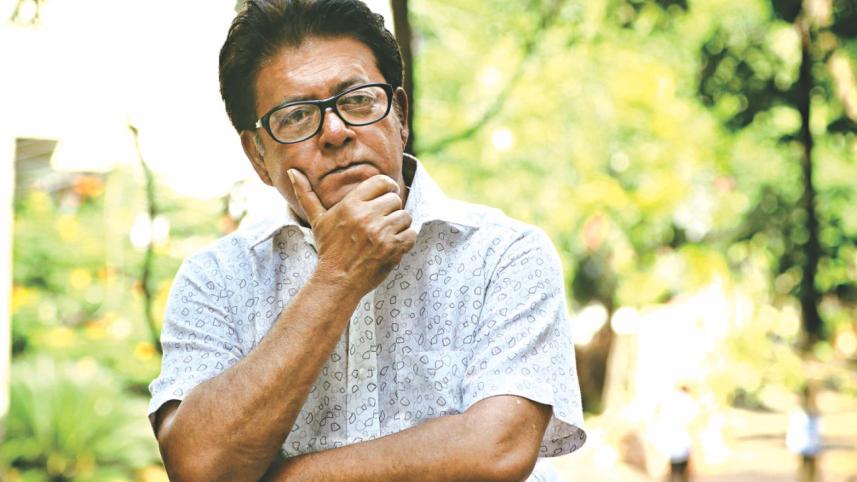Mamunur Rashid looks back on Victory Day

Eminent thespian Mamunur Rashid is a name that generates respect and admiration at home and abroad. An actor, director, playwright and cornerstone of reputed theatre troupe Aranyak, he currently holds another position in his expansive career as the leading member of Federation of Television Professionals Organisation (FTPO). His passion towards the cause of television professionals is testament to his passion for Bangladeshi culture and arts that he bravely demonstrated during the Liberation War of 1971. The artiste shared some significant memories of Independence Day with The Daily Star.
“When the War broke out, on March 25 and 26, I was in Dhaka. On the following evening I left the city to be with my family in Tangail. My family lived in the main town, but they weren't home when I reached. I then made my way to my uncle's house in the village, and found them all there. They were overjoyed upon seeing me make it safely from a city already ravaged by war. At Hamidpur, a village in the same district, I was approached by potters who told me that the Pakistani army had left some weapons in their furnace, and that they wished to pass them onto the Freedom Fighters. I along with them took these weapons to Kader Siddique, and it was with these weapons the Kader bahini moved forward. Soon after, I left the country and traveled to Kolkata to join Shadhin Bangla Betar Kendra in an effort to contribute to the war with our culture and music.”
“I was still in Kolkata on Victory Day, and we finally had a country to call our own. A significant memory which I want to share occurred before Independence on December 6, when India gave recognition to Bangladesh as an independent state. I met Zahir Raihan in front of Bangladesh Mission and he clasped me in a joyous embrace, and that has remained crisp in my memory since the wake of independence. On Victory Day, we all listened to the live broadcasting of the day's events, with uncontained excitement. There were no telephone connection to our country, and we could not share the joy with the people we had left behind there. At Shadhin Bangla Betar Kendra, we had a celebratory programme on the radio where Sujeya Syam composed a song commemorating the day.”



 For all latest news, follow The Daily Star's Google News channel.
For all latest news, follow The Daily Star's Google News channel.
Comments